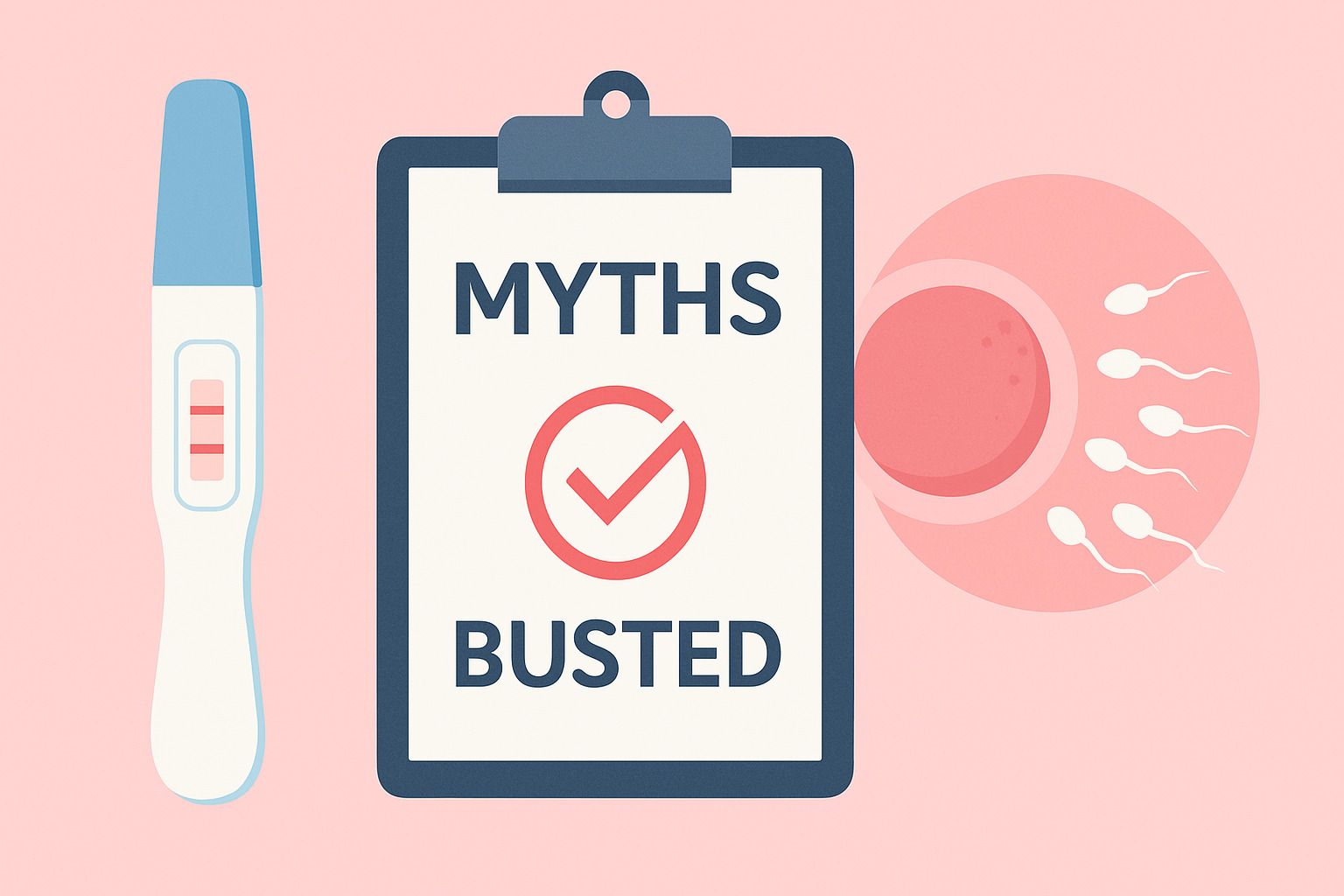Many couples wonder if lifestyle choices or age alone determine fertility success. Scientific studies show multiple factors play roles, not single causes.
1. Myth: You Must Track Ovulation to the Minute
- Most home ovulation kits detect hormone surges within a 24–48 hour window.
- Tracking basal body temperature every morning can vary by a few degrees, making pinpoint timing unreliable.
- Having intercourse every 2–3 days through the cycle increases odds without stress over exact hours.
2. Myth: Fertility Drops Suddenly at 35
- Egg quantity and quality decline gradually after age 30, not overnight at 35.
- Many healthy pregnancies occur in the late 30s with proper medical support.
- Regular check‑ups can identify any early ovarian reserve concerns.
3. Myth: Male Fertility Doesn’t Change with Age
- Sperm motility and morphology decline slightly after age 40.
- Lifestyle factors—smoking, heavy alcohol, obesity—affect sperm count more than age alone.
- Men benefit from antioxidant‑rich diets and regular exercise to support sperm health.
4. Myth: Fertility Tests Guarantee Pregnancy Predictions
- Tests like AMH and antral follicle count indicate ovarian reserve, not pregnancy chances.
- Normal hormone levels don’t ensure healthy eggs; low levels don’t always block conception.
- Doctors use multiple assessments—hormones, ultrasound, semen analysis—to guide treatment.
5. Myth: Stress Alone Causes Infertility
- Chronic stress can disrupt hormone balance, but occasional anxiety won’t block conception.
- Mind‑body practices—yoga, meditation—support overall well‑being, not direct fertility boosts.
- Addressing medical issues—thyroid, PCOS, endometriosis—yields greater impact than stress reduction alone.
6. Myth: You Can’t Conceive on Birth Control
- Fertility returns quickly for most women after stopping hormonal pills or IUDs.
- Occasional delayed cycles in the first month post‑pill don’t indicate lasting infertility.
- Consult a physician if no period returns within three months after discontinuation.
7. Myth: Only IVF Helps After a Year of Trying
- Lifestyle adjustments—diet, sleep, moderate exercise—can improve natural conception odds.
- Fertility medications like clomiphene citrate stimulate ovulation for many women.
- IUI (intrauterine insemination) offers less invasive intervention before moving to IVF.
8. Myth: Egg Freezing Guarantees Future Baby
- Freezing at younger ages preserves egg quality, but thaw survival varies by lab.
- No eggs survive thaw 100%; success rates depend on age at freezing and technique.
- Ongoing fertility monitoring after freezing informs realistic expectations.
9. Myth: Caffeine and Sex Positions Define Success
- Moderate caffeine intake (under 200 mg/day) shows no clear link to lower fertility.
- No scientific proof that specific sexual positions increase conception odds.
- Blood flow to the uterus and sperm health matter more than gravity or posture.
10. Myth: Herbal Supplements Always Improve Fertility
- Some herbs—vitex, maca—lack robust clinical trials and may interact with medications.
- Quality control in supplements varies; contamination risk exists.
- Discuss any supplement plan with a reproductive specialist before use.
Practical Steps to Support Fertility
- Balanced Nutrition
- Include lean protein, whole grains, healthy fats, and colorful fruits and vegetables.
- Regular Medical Screening
- Check thyroid, blood sugar, hormone levels and discuss any concerns early.
- Maintain Healthy Weight
- BMI within 18.5–24.9 optimizes hormone balance for many couples.
- Limit Toxins
- Avoid smoking, reduce alcohol, choose low‑chemical household products.
- Stay Active
- Aim for 150 minutes of moderate exercise weekly without overtraining.
Clearing up common misunderstandings helps couples focus on evidence‑based actions. Medical guidance combined with healthy habits provides the strongest foundation for conception.
